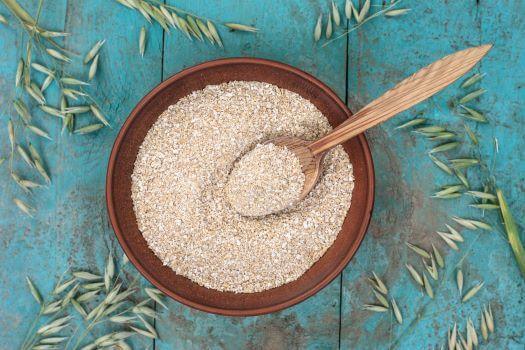
January 25, 2018 2 min read
Certainly, if you have dangerous gluten sensitivity, you should only buy certified gluten-free products, even if you believe an item is naturally gluten-free.
That being said, Oat Bran and other oat products are considered by many to be naturally gluten-free, or at least they do not contain the kind of proteins that are normally considered under the banner of grains with gluten such as wheat, rye, and barley.
Check out our organic non-GMO whole grains
The net is that this is not as simple a question as one would hope, so here is some more detailed explanation:
Even though the proteins are a little different in each case, people who have gluten intolerance often find that they mainly react to proteins that exist in rye (secalin protein), barley (hordein protein), and wheat (gliadin protein). Together these three proteins are what people typically understand as "gluten".
Meanwhile, Oat Bran has a different protein called avenin which generally people find tends to cause fewer problems than gluten proteins, so normally it is not considered a gluten-containing product... and many people refer to oat products as naturally gluten-free.
One of the challenges, and a reason you may want to buy certified gluten-free if you have a dangerous sensitivity, is sometimes oats are processed in plants where other grains are processed, which can result in gluten cross-contamination. This can happen during any part of the process from field (adjacent fields growing gluten and gluten-free items) to bagging (manufacturing gluten and gluten-free items on the same equipment), and therein lies the risk if you have a strong sensitivity to gluten.
In the end, the only real way to see if the oat protein avenin affects you individually is to try it, but only try certified gluten-free options in this case, and only do so if there is no life-threatening risk in your gluten intolerance. For those who are comfortable trying it to see if the oat protein avenin has any adverse effect on you, you know your symptoms by now I am sure!
As of 8/2020, Be Still Farms does not yet carry any certified gluten-free products, so let us know if you have interest!
❤ Try our USDA certified organic Oat Bran❤
Recipes:
Thanks for reading this Be Still Farms Blog article. To sign up for more news/articles and/or recipes, click here. For more about us, click here. To shop our certified organic products, click here.
Please comment and share and we look forward to serving you in the future!
Comments will be approved before showing up.

January 27, 2025 3 min read
Flaxseed, the tiny yet powerful superfood, is packed with nutrients that can support weight loss. From curbing hunger to stabilizing blood sugar, this guide dives into the science of how flaxseed can help you shed those extra pounds.

December 11, 2024 3 min read
Discover three quick and easy soup recipes featuring organic small red beans. From a classic vegetable soup to a creamy potato blend, these wholesome recipes are perfect for chilly days and busy weeknights. Packed with flavor and nutrition, these soups will warm your heart and soul this winter!

December 06, 2024 3 min read
This vibrant and nutritious Green Lentil Salad combines tender lentils with grilled chicken, fresh vegetables, and a zesty lemon dressing. Packed with protein, fiber, and essential vitamins, it’s the perfect healthy meal for any time of day.
© 2025 Be Still Farms- Real, Fine Organics.
Privacy | Terms | Refund Policy | Organic Certification
